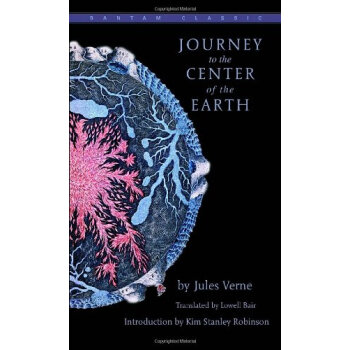![Purgatorio[炼狱] [平装]](https://pic.windowsfront.com/19017073/rBEhV1KcJwgIAAAAABKMMuDGXeEAAGVegF_vQUAEoxK434.jpg)

具体描述
编辑推荐
"Lovers of the English language will be delighted by this eloquently accomplished enterprise."内容简介
This splendid verse translation by Allen Mandelbaum provides an entirely fresh experience of Dante's great poem of penance and hope. As Dante ascends the Mount of Purgatory toward the Earthly Paradise and his beloved Beatrice, through "that second kingdom in which the human soul is cleansed of sin," all the passion and suffering, poetry and philosophy are rendered with the immediacy of a poet of our own age. With extensive notes and commentary prepared especially for this edition.作者简介
Dante Alighieri was born in Florence, Italy in 1265. His early poetry falls into the tradition of love poetry that passed from the Provencal to such Italian poets as Guido Cavalcanti, Dante's friend and mentor. Dante's first major work is the Vita Nuova, 1293-1294. This sequence of lyrics, sonnets, and prose narrative describes his love, first earthly, then spiritual, for Beatrice, whom he had first seen as a child of nine, and who had died when Dante was 25. Dante married about 1285, served Florence in battle, and rose to a position of leadership in the bitter factional politics of the city-state. As one of the city's magistrates, he found it necessary to banish leaders of the so-called "Black" faction, and his friend Cavalcanti, who like Dante was a prominent "White." But after the Blacks seized control of Florence in 1301, Dante himself was tried in absentia and was banished from the city on pain of death. He never returned to Florence. We know little about Dante's life in exile. Legend has it that he studied at Paris, but if so, he returned to Italy, for his last years were spent in Verona and Ravenna. In exile he wrote his Convivio, kind of poetic compendium of medieval philosophy, as well as a political treatise, Monarchia. He began his Comedy (later to be called the Divine Comedy) around 1307-1308. On a diplomatic mission to Venice in 1321, Dante fell ill, and returned to Ravenna, where he died.Allen Mendelbaum's five verse volumes are: Chelmaxions; The Savantasse of Montparnasse; Journeyman; Leaves of Absence; and A Lied of Letterpress. His volumes of verse translation include The Aeneid of Virgil, a University of California Press volume (now available from Bantam) for which he won a National Book Award; the Inferno, Purgatorio, and Paradiso volumes of the California Dante (now available from Bantam); The Odyssey of Homer (now available from Bantam); The Metamorphoses of Ovid, a finalist for the Pulitzer Prize in poetry; Ovid in Sicily; Selected Poems of Giuseppe Ungaretti; Selected Writings of Salvatore Quasimodo; and David Maria Turoldo. Mandelbaum is co-editor with Robert Richardson Jr. of Three Centuries of American Poetry (Bantam Books) and, with Yehuda Amichai, of the eight volumes of the JPS Jewish Poetry Series. After receiving his Ph.D. from Columbia, he was in the Society of Fellows at Harvard. While chairman of the Ph.D. program in English at the Graduate Center of CUNY, he was a visiting professor at Washington University in St. Louis, and at the universities of Houston, Denver, Colorado, and Purdue. His honorary degrees are from Notre Dame University, Purdue University, the University of Assino, and the University of Torino. He received the Gold Medal of Honor from the city of Florence in 2000, celebrating the 735th anniversary of Dante's birth, the only translator to be so honored; and in 2003 he received the President of Italy's award for translation. He is now Professor of the History of Literary Criticism at the University of Turin and the W.R. Kenan Professor of Humanities at Wake Forest University.
用户评价
我必须说,这本书的内容深度远远超出了我对一本新书的预期。它探讨的主题非常宏大且尖锐,涉及了人性中的永恒困境,比如道德的灰色地带、救赎的代价以及个体在巨大历史洪流中的无力感。作者并没有试图提供简单的答案,而是巧妙地将读者推入到那些没有明确对错的伦理迷雾中,迫使我们自行去构建理解的框架。我特别喜欢书中对“时间”这一概念的处理。在不同的章节里,时间似乎以不同的速度流淌,有时快如闪电,有时又凝固成永恒的一瞬,这极大地增强了作品的哲学思辨色彩。读完最后一章,我花了足足二十分钟盯着天花板,脑子里还在回响着那些未解的疑问和留给读者的广阔解读空间。这绝对是一部能够激发深度思考的杰作,适合那些厌倦了肤浅情节的严肃读者。
评分这本书的文字功底实在令人叹为观止,简直是一场语言的盛宴!我常常需要放慢速度,不是因为情节晦涩,而是因为那些精心打磨的句子本身就值得反复咀嚼。作者似乎对每一个词语的选择都有着近乎偏执的追求,使得整部作品充满了音乐般的韵律感。比如说,书中描述自然景色的段落,没有使用任何陈词滥调,而是用一系列新颖的比喻,将风的形态、光的颜色描绘得栩栩如生,仿佛可以直接用手触摸到那种质感。这种对文学技艺的极致追求,让阅读体验拔高到了一个艺术欣赏的层面。它挑战了传统叙事模式,在结构上进行了大胆的创新,时而跳跃,时而回溯,但每一次看似不经意的切换,最终都会巧妙地汇聚到核心主题上,展现出一种高超的控制力。这是一部需要用心去“听”的文本,而非仅仅是“看”的文本。
评分老实讲,我一开始对这类题材抱持着谨慎的态度,担心它会落入某种叙事窠臼,但这本书完全颠覆了我的预设。它以一种近乎冷峻的现实主义笔触,却又穿插着一些极其魔幻或象征性的意象,创造出一种独特的阅读体验——既扎根于真实,又超越了现实。作者的叙事视角切换得非常流畅自然,从一个局外人的冷眼旁观,瞬间切换到主人公内心深处的狂热独白,这种切换处理得毫无斧凿痕迹,让读者始终保持在一种高度警觉的状态。更妙的是,书中某些场景的描绘,带有强烈的地域特色和文化符号,虽然我从未踏足那个地方,却能真切地感受到那里的气候、气味乃至那种特有的社会氛围。总而言之,这是一部在结构、情感和艺术手法上都力求突破的当代力作,值得被放在书架的最显眼位置。
评分这本新近入手的精装书简直是文学探索的奇遇记!从翻开扉页的那一刻起,我就被作者那如同古希腊史诗般的叙事笔触深深吸引。它的封面设计极其典雅,那种深沉的蓝与烫金的书名在灯光下交相辉映,透露出一种历经沧桑的历史厚重感。我特别欣赏作者在构建世界观时所展现出的那种细致入微的匠心。书中对不同社会阶层的生活状态、隐秘的家族恩怨,以及那些潜藏在日常之下的哲学思辨,都被描绘得淋漓尽致。阅读的过程中,我感觉自己仿佛置身于一个巨大的迷宫,每深入一层,都能发现新的线索和意想不到的转折。尤其值得称赞的是,作者对人物心理的刻画入木三分,那些复杂、矛盾、挣扎的情感,让人在阅读时不禁会反思自身的经历。它不是那种读完就忘的快餐文学,更像是一坛需要时间去品味的陈酿,每一次重读都会有新的领悟。
评分这本书的装帧设计和纸张触感,简直是为阅读仪式感而生的。拿到手时,那种适中的重量感,以及内页纸张略带粗粝却又极其平滑的质地,都显示出出版商在制作上的用心。即便不谈内容,单就“拥有”这本书这件事来说,也是一种享受。装帧的细节处理得非常到位,字体排版疏密得当,留白恰到好处,长时间阅读下来眼睛也不会感到疲劳。这对于一本篇幅可观的作品来说至关重要。我个人偏爱在午后,泡一杯浓茶,窝在沙发里,伴随着窗外的光线缓缓翻阅。这种物质上的舒适体验,极大地提升了对文本内容的接受度和沉浸感。它让我重新找回了那种沉浸式阅读的乐趣,而不是被屏幕的冷光所打扰。这无疑是送给自己或任何爱书之人的绝佳礼物。
评分好书
评分但丁的名著,意大利和英语对照。还不错。
评分Random House 版
评分书的质量还不错!小小的便于携带!京东的速度很快
评分书还是不错,纸的质量一般~
评分囤货时间长了点哈。
评分不错,相当不错,放假了抽空好好研读一下
评分在爸妈wang看到活动300-130购入,很喜欢的书
评分等待了一个多月,于平安夜的今天收到,是否是上帝的刻意安排呢?书是好书,很满意。
相关图书
本站所有内容均为互联网搜索引擎提供的公开搜索信息,本站不存储任何数据与内容,任何内容与数据均与本站无关,如有需要请联系相关搜索引擎包括但不限于百度,google,bing,sogou 等
© 2026 book.coffeedeals.club All Rights Reserved. 静流书站 版权所有

![Who Says Elephants Can't Dance 谁说大象不能跳舞 [平装] pdf epub mobi 电子书 下载](https://pic.windowsfront.com/19021237/550bea1aN2d8720a1.jpg)
![Century: Ring of Fire (Quality Paper) [平装] [9岁及以上] pdf epub mobi 电子书 下载](https://pic.windowsfront.com/19032998/3fc065d7-e8e1-4a29-a467-66467661d63f.jpg)
![Junie B. Jones and the Stupid Smelly Bus 朱尼·琼斯系列1:琼斯和臭巴士 [精装] [6-9岁] pdf epub mobi 电子书 下载](https://pic.windowsfront.com/19033385/6d889322-f2f4-4820-98ca-366aa38d0880.jpg)
![Green Eggs and Ham and Other Servings of Dr. Seuss(Audio CD) 英文原版 [平装] [4岁及以上] pdf epub mobi 电子书 下载](https://pic.windowsfront.com/19037318/13b0eb72-a07b-4a81-bd52-72f17f18717f.jpg)
![Co-Opetition[合作] 英文原版 [平装] pdf epub mobi 电子书 下载](https://pic.windowsfront.com/19043131/142189e0-0646-42bf-bb4d-5fe3e17e6df0.jpg)
![I, Steve: Steve Jobs in His Own Words[乔布斯语录] [平装] pdf epub mobi 电子书 下载](https://pic.windowsfront.com/19044494/63b1f919-25ee-4688-b9c8-9f1296fb509f.jpg)
![The Hunger Games, Movie Tie-in Edition[饥饿游戏,电影版] [平装] pdf epub mobi 电子书 下载](https://pic.windowsfront.com/19048353/rBEhWVKOzDcIAAAAAACmAew5BGIAAFzUAHUyuoAAKYZ840.jpg)
![Difficult Conversations: How to Discuss What Matters Most [平装] pdf epub mobi 电子书 下载](https://pic.windowsfront.com/19126415/539f89c2N9174a328.jpg)
![The Night Before Christmas 平安夜 英文原版 [平装] [5-8 岁] pdf epub mobi 电子书 下载](https://pic.windowsfront.com/19279994/rBEQWVFbfIAIAAAAAAN1qF7PwLcAADWdwNc8SQAA3XA957.jpg)
![The Wind in the Willows [精装] [6岁及以上] pdf epub mobi 电子书 下载](https://pic.windowsfront.com/19507264/56e91955N90bf7a3b.jpg)

![Pinkalicious: Cherry Blossom [平装] pdf epub mobi 电子书 下载](https://pic.windowsfront.com/19541715/55966655N84b6d250.jpg)
![Lonely Planet Israel & the Palestinian Territories 孤独星球:以色列、巴勒斯坦 英文原版 [平装] pdf epub mobi 电子书 下载](https://pic.windowsfront.com/19546262/56025ed2Nf5ceeaac.jpg)






